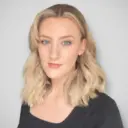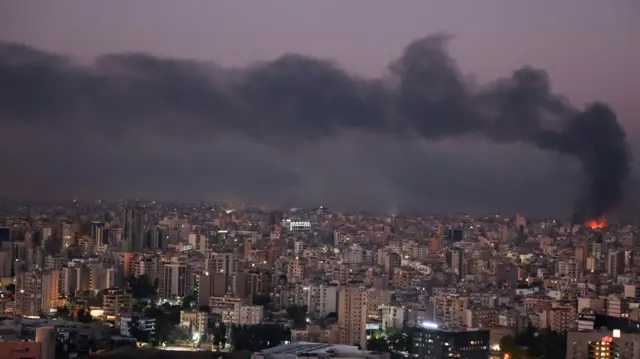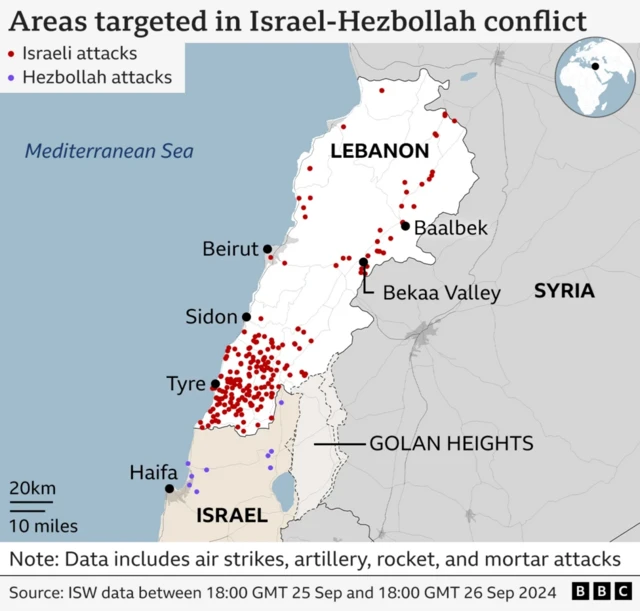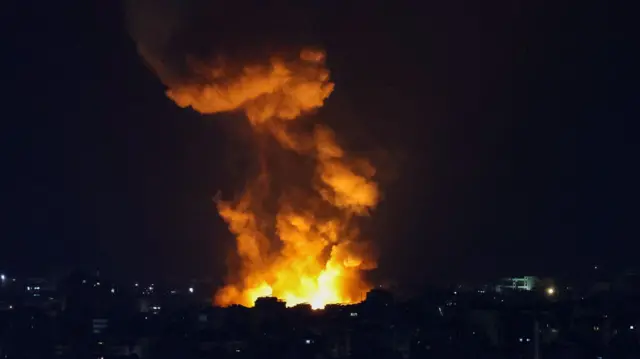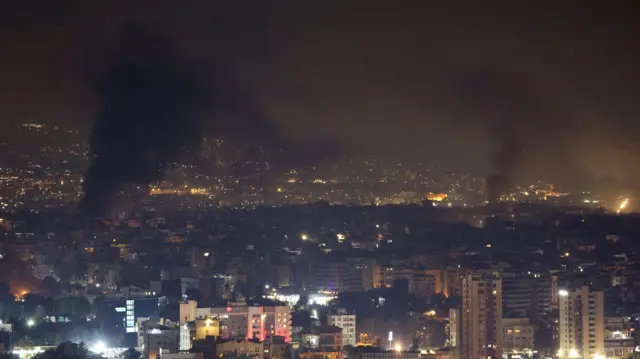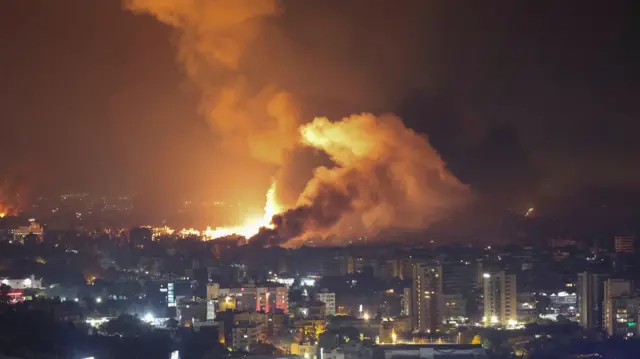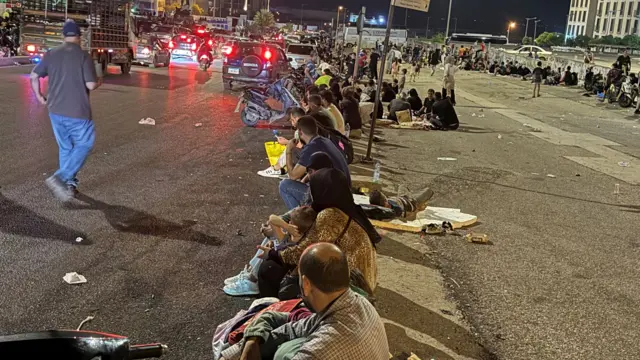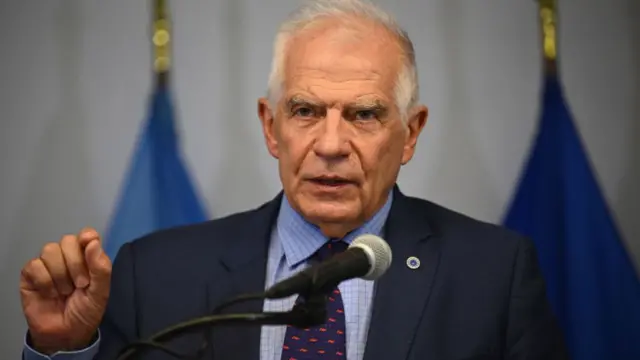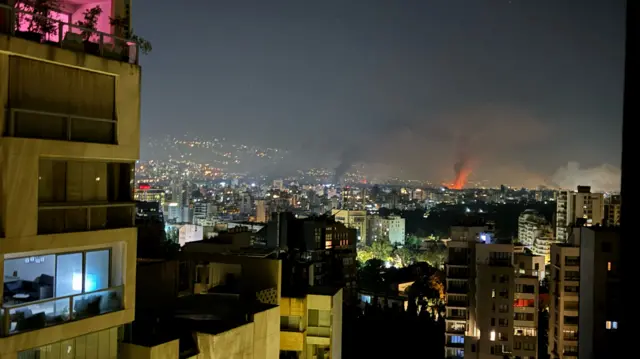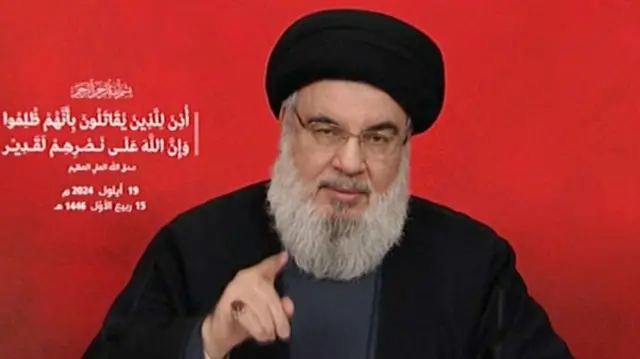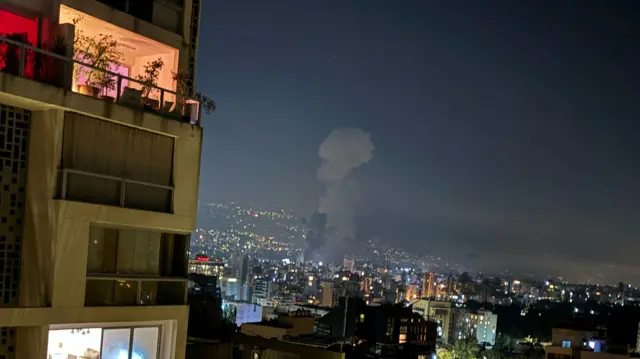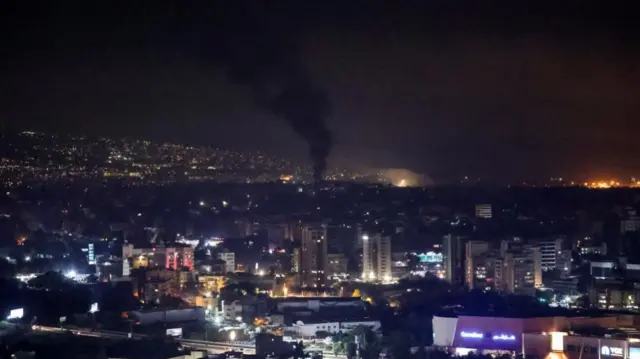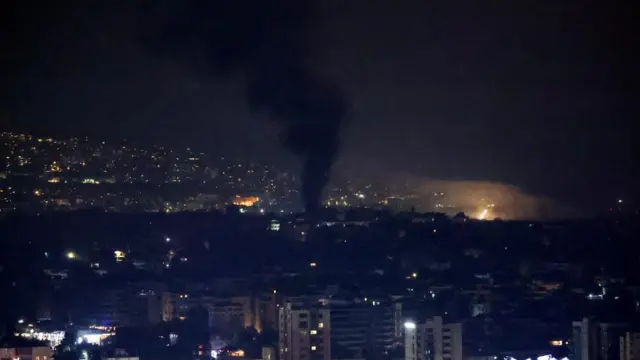Smoke billows across Dahieh after overnight Israeli strikespublished at 05:45 BST 28 September 2024
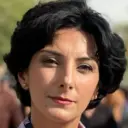 Nafiseh Kohnavard
Nafiseh Kohnavard
BBC Persian Middle East correspondent, in Beirut
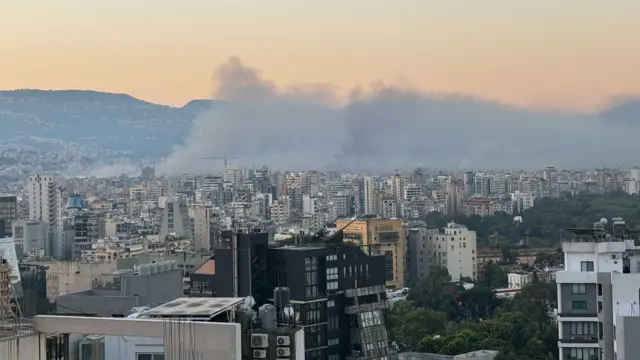 Image source, Nafiseh Kohnavard BBC
Image source, Nafiseh Kohnavard BBCThick smoke rises from several locations Dahieh southern suburb of Beirut this morning.
I can see from my window overlooking towards the area that some places are still burning. Israel’s air strikes continued until almost sunrise.
All last night I heard loud explosions. The blasts were heavy. My Lebanese army contact says in most of air strikes, Israel has used bunker buster bombs.
“It is clear that they wanted to pretreat possible tunnels underneath," they said.
Search and rescue operations in several attack sites continue. Many displaced people from the area had to sleep in the streets last night.
There are still conflicting reports regarding the fate of Hezbollah leader Hassan Nasrallah.
The group’s media office has not denied or confirmed rumours about that he might have been killed, although some Iranian Revolutionary Guards-linked media have claimed that they have confirmation that he is “alive and in a safe place”.
But some other people close to Hezbollah have posted on X asking supporters to “pray for their leader’s safety.”
